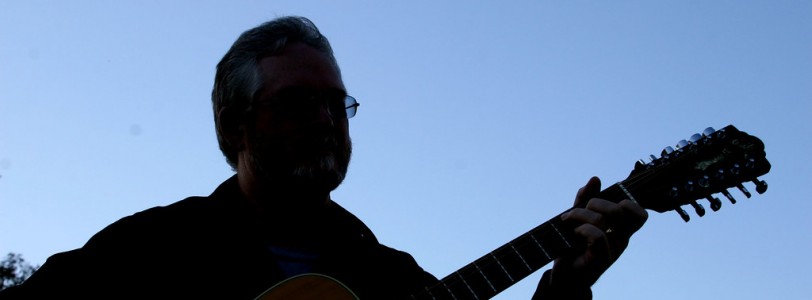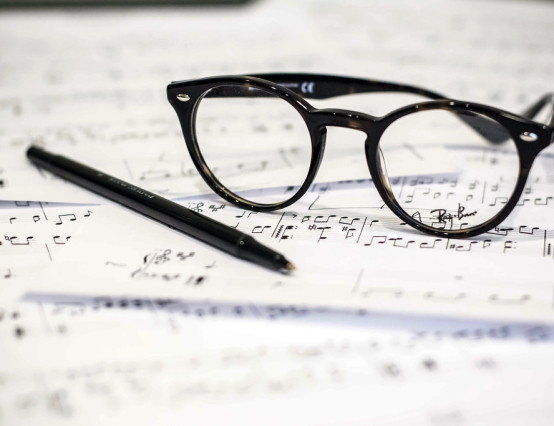In 1961, Robert Jay Lifton published his book Thought Reform and the Psychology of Totalism. Now considered a seminal work in the field of psychology, his eight principles of thought reform are now popularly used as a metric to identify cults and are used with varying levels of sincerity to theorise about the relationship certain groups or organisations have with their members. This might seem like a stretch to call a non-religious organisation or group a “cult”, but according to Lifton, these principles do not distinguish between secular or sacred groups (I would highly recommend reading Chapter 22 of the book where these ideas are first presented).
Obviously, shouting “cult” at any group to which these ideas might apply is rarely particularly useful. Instead, Lifton’s “cult criterion” can be helpful to understand patterns of behaviour that a particular group encourages or enforces on its members that might be adversely affecting their wellbeing, perhaps even without their conscious knowledge.
That’s all very well Chris, but what does this have to do with music you ask? Well, at first I thought: nothing; music is an art form, not an organisation, these rules couldn’t possibly apply. However, the more I thought about it, the more patterns of behaviour emerged that fit worryingly with the archetypes Lifton described.
So, to illustrate the idea, I will go through each of the eight criteria that Lifton lays out and see if we can see any patterns of behaviour that would appear to have some parallels within the way we teach, talk about, and even meme about music.
Milieu Control
This encompasses the idea that a group controls the information available to the people within it. Within traditional cults, this is usually achieved by limiting access to the outside world: restricting access to internet or phones, geographically tying someone to a particular location associated with the cult, dissuading members from talking to people outside of the cult.
Music does actually do this too; in secondary education and junior music colleges especially, there is an atmosphere of disdain towards any genre of music that isn’t part of any particular social group’s canon. There is no formal demand nailed to the door of the concert hall that “thou shalt not listen to dubstep”, but the demand is implied by a social phenomenon. There is a belief that genres of music that aren’t part of the western classical tradition aren’t “real” music, and in an environment when young performers are so often being pressured into seeing themselves as “serious” musicians, that in and of itself is enough to place any music not part of the “serious” canon as taboo, or a guilty pleasure at best.
The same works with popular musics: no self-respecting metalhead would enjoy listening to Debussy in his car surely? There is an argument to be made that many popular and contemporary music genres are as much a socially-enacted aesthetic as a purely musical genre (the goth social group’s association with metal for instance, which is an article in and of itself). This potentially puts more pressure on members of a particular genre’s fandom to identify as enjoying only the accepted musical styles of the group as opposed to expressing their individual taste.
Of course, this is not universally true, and brilliant crossover music occurs between traditionally disparate musical groups more and more. Lindsay Sterling has incorporated elements of dubstep into her pieces, Pentatonix have covered almost every genre imaginable with their characteristic acapella sound, and The Rapsody Overture is an entire album of bizarre and strangely compelling mashups of classical music and rap (my favourite being their take on Borodin’s Prince Igor). However, I think it is safe to say that within individual institutions and certain genres and groups, there remains an element of pressure to segregate yourself from other music forms for the sake of your acceptance within the group.
Loading the Language
Language loading – using specialised slang or terminology that only those within the group understands – is a way of using specialist jargon to simultaneously gatekeep the group against unwelcome outsiders and isolate newer members and pressurise them into learning a whole new language, lest they are excluded from understanding what is going on around them. This is an idea that is often used as a mechanism for milieu control. In this instance, the computer jargon of electroacoustic music or the slang of hip hop could be considered as loaded languages that are designed to insulate their group members.
In classical music the effect is a little less evident in the language; it instead exists by way of the “canon”: the group of composers that are considered important, nay essential, for any true lover of classical music to know. Members of classical music might extol the virtues of Bach or proclaim the genius of Mozart simply out of a desire to present themselves as a classical music lover, regardless of their individual opinions on the composers’ works. They are saying “Behold: I know which composers I am supposed to care about. Accept me.”.
Sacred Science and Doctrine Over Person
The principle behind these two aspects of Lifton’s criteria is that you are told that something is the truth, and you accept it utterly. After all, the person who is telling you is unquestionably right, or even the very font from which truth itself flows - right?
Music teachers are what contribute to this particular aspect the most, but it comes from other sources as well. We can be told what music is good or bad and it can be justified by people stating subjective perspectives as facts or by using the ever-reliable “it’s a matter of taste” rebuttal, always with the unstated implication of “but I c have better taste than you”.
But music teachers are perhaps the most unassailable of those who would claim ownership of the truth; after all, from whom else will we learn our craft? So when your teacher tells you to do something different because “it will sound better” with no further justification, you are taking it on faith that they are correct and little more.
Mystical Manipulation
Ever had that moment in a music lesson where your teacher asks you to do something different, you have no idea what they’re on about so just play/sing the same way you did before, and suddenly your teacher says how wonderfully you just played and how it made such an enormous difference to your sound? That’s what mystical manipulation is. It’s seen in the practices of bogus gurus’ who use research and psychological manipulation on targets to seemingly know unknowable truths about them, that they then use to prove their connection to the supernatural. Here, it’s actually much lazier, and little more than gaslighting, really. The sacred science doctrine lays out a “self-evident truth”, and then uses that truth to provide “evidence” for its underlying point, just in case questions continue to be asked. In a way, it is an extension of the sacred science tenet in that the teacher expects to be unconditionally believed, so when they claim to perceive a difference in your music – even if you have changed literally nothing – you are expected to believe that this is somehow proof of their teachings.
Confession
This is probably the point at which music most egregiously conforms to Lifton’s criteria. “I haven’t done enough practise”. This is the immortal confession of musicians, and it is a universal one, transcending genre and region entirely. So much has this pervaded the subconsciousness of music students (and professional musicians) that it has become a meme in its own right that if you are not practising right now, you should be. It seems harmless enough exaggeration, but it’s a pervasive attitude that is a little too close to some genuine opinions held by some teachers and professionals in the real world and encourages an obsessive pattern of behaviour.
Now my distaste for TwoSetViolin – a social media duo who make various forms of music-related content with a focus on memes, sketches, and reaction (or overreaction...) to cringey or impressive music videos – is well known to my friends. One of my issues with them is that they encourage this same kind of obsession over practice. Moreover, they actually profit from it; selling a line of merchandise with various practice themed items of clothing. Now I’m sure that many will argue that this is supposed to be satire. It might well be (even if I personally don’t buy it), but then I think if that’s so, we have a severe case of Poe’s Law going on. Some examples include simply the word “practice” on a plain background, the phrase “I need to practice” repeated as if said in a stressed panic, and the words “Eat, sleep, practice” written in between a set of repeated bars.
Now I do get it, it’s supposed to be funny, but what exactly are we laughing at? I would be more amiable to it if I felt like the idea was to laugh at our own over-obsession with practising and workaholism endemic to musicians. The reason it rubs me up the wrong way is that it seems more like an encouragement to lampshade our inadequacies, to admit that we should work harder and practice more, to confess that we aren’t doing “enough”.
It’s worth stressing of course that Twoset are not the only people doing this. Even that bastion for the “serious” young classical musician: the Classic FM Facebook page, has shared similar memes. We need to stop this idea that workaholism is somehow cool, instead of being unhealthy both physically and mentally.
Demand for Purity
This is sort of an extension of the above; a demand for purity is the idea that only those who are good or pure enough can achieve what the group promises. You have to give up any activity or trait which doesn’t align with the goals of the group and focus all your energy on achieving what the group promises you. It’s easy enough to see how this applies to the practice dilemma: the music world promises success to those who practice hard enough: orchestral positions, a successful band that gets a record deal, or even just the slightly idealistic goal of just making good music. If you aren’t practising every free second you get, you are told you cannot achieve any of this, and if you do something else with your free time – socialising, hobbies, even educating yourself – you are wasting time, and are clearly not fully committed to achieving this goal that you should be putting above all else.
Dispensing of Existence
This is usually the most extreme element of the criteria: you are only one part of the greater ineffable whole, and as such, your life is meaningless in comparison. The lives of those outside the group are worth even less.
Now, of course music is not exactly some kind of death cult, but the way in which this applies is how musicians are encouraged to interact with other people. For a start, there is an idea that only those within the group are worth knowing; only they have the connections that could further your musical progression, after all. Why befriend a physicist when you could befriend a teacher at a conservatoire you might want to go to in the future? Of course, this is a very career-oriented mindset, but considering that many young musicians are little more than the pieces in their parent’s machinations to make them successful, this is an unfortunate reality for some.
A more widespread idea is simply: why would you want to make friends with a non-musician? Surely you’ll not have anything in common? What would you even talk about? The answer is, obviously: many things. However, young musicians – especially in junior conservatoires – are brought up in an environment where from one moment to the next, all people talk about in their spare time is music. Couple that with the kind of systemic bullying that can often happen in schools against musicians because you are perceived as being “different” and it is surely no wonder why some would start to think that people outside the musical group aren’t really worth knowing. I’ve heard several young musicians before discussing whether or not they’d go out with a non-musician, with the overwhelming opinion being that no, they couldn’t possibly; they just wouldn’t have anything in common.
Finally, we return to the issue of practising. Having dispensed of the existence of others, you merely need to dispense of your own. This is what the never-ending push for perpetual practise leads to: the primacy of the music itself above your own wellbeing. We aim for this mythical idea of perfection in our music, and are willing to put our wellbeing to one side in order to do so, whether that be excessive practising, or just being overly harsh on ourselves. Both have the potential to harm mental and physical wellbeing. I will personally never forget the story of one conservatoire student who would set aside a certain amount of time every day in a practice room to cry for 15 minutes, almost to the second, before returning to her practice.
Conclusion
So what is the point of this? Well, I think it highlights the abusive framework that music culture has built up, and how potentially dangerous it is to young musicians. Perhaps the cult analogy is a little stretched in places, but it was never my intention to say something as ridiculous as “music is a cult”, just that there are some similarities between the abuse power relationships present within both.
As for what we do about it, that will be something that musicians have to work on as a community. After all, by sharing those self-deprecatory memes and laughing about how little practise we’ve done today, we help perpetuate this atmosphere in which these systems are allowed to operate unchallenged. Let’s be kinder to the young musicians who will be following us and looking to us for examples, show them that good music comes from well-rounded people with lives that extend beyond their art.
There is more to life than music.









0 Comments